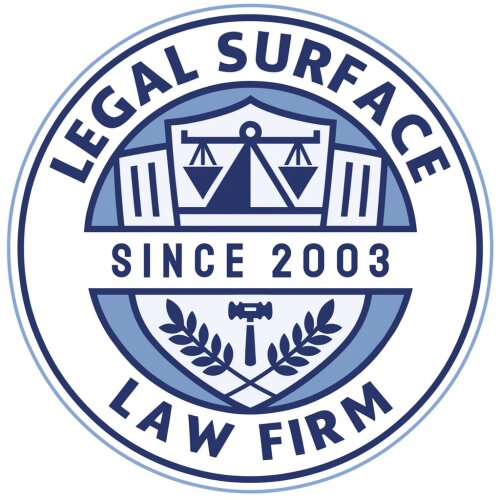Best State, Local, and Municipal Law Lawyers in Srinagar
Share your needs with us, get contacted by law firms.
Free. Takes 2 min.
List of the best lawyers in Srinagar, India
About State, Local, and Municipal Law in Srinagar, India
State, local, and municipal law in Srinagar, India broadly covers the rules, regulations, and administrative procedures enacted by the State of Jammu and Kashmir (now the Union Territory of Jammu and Kashmir), and its local bodies such as the Srinagar Municipal Corporation (SMC). These laws govern issues ranging from property and land use, urban planning, local taxation, municipal services, trade licenses, building permits, and environmental protection to matters like public nuisance and community welfare. Since Srinagar is the largest city and summer capital of Jammu and Kashmir, its local governance framework is particularly important, affecting daily life, economic activities, and the development of the city.
Why You May Need a Lawyer
Legal matters involving state, local, and municipal law can be complex, since they often blend state legislation with local regulations. Some common situations where you may need a lawyer in Srinagar include:
- Disputes or confusion over land ownership, zoning, or land use permissions
- Obtaining or challenging building permits, trade or commercial licenses
- Disagreements with the Srinagar Municipal Corporation regarding property taxes or assessments
- Issues related to tenancy, eviction, or municipal notices
- Complaints concerning encroachments, illegal constructions, or violations of building codes
- Questions about environmental clearances for projects
- Public interest litigations affecting municipal administration or local development
- Litigation resulting from actions taken (or not taken) by local authorities
- Legal compliance for businesses starting or expanding in Srinagar
- Resolving issues of municipal services such as sanitation, water, drainage, and waste management
Local Laws Overview
The legal framework for state, local, and municipal matters in Srinagar is influenced by both national laws and region-specific rules due to the unique status of Jammu & Kashmir as a union territory since 2019. Some laws of note include:
- Srinagar Municipal Corporation Act: Governs the establishment, powers, and functioning of the SMC, its responsibilities for urban management, taxation, sanitation, and regulation of construction.
- Jammu and Kashmir Land Revenue Act: Deals with matters of land ownership, transfer, and dispute resolution pertaining to revenue land.
- Building By-laws and Development Control Rules of Srinagar: Set out standards and requirements for construction, safety, land usage, and alterations.
- State and Central Environmental Laws: For environmental clearances, pollution control, and protection of natural resources, especially considering the ecologically sensitive Dal Lake and surrounding areas.
- Taxation Laws: Cover property taxes, municipal taxes, and applicability/ratable values as per local rules.
- Markets and Business Regulation: Licenses for commercial activity and compliance with public health and safety standards.
- Solid Waste Management Rules: Mandate responsibilities of residents, institutions, and municipal authorities for handling waste and keeping the city clean.
Understanding these laws is essential before entering transactions, starting construction, running a business, or dealing with municipal authorities in Srinagar.
Frequently Asked Questions
What is the role of the Srinagar Municipal Corporation?
The Srinagar Municipal Corporation (SMC) manages urban planning, sanitation, local infrastructure, public health, issuing licenses, tax collection, and enforces building codes within the city limits.
How can I obtain a building permit in Srinagar?
You must submit an application with relevant documents, drawings, and clearances to the SMC. Approvals require compliance with the Building By-laws and zoning rules. Professional assistance from an architect or lawyer is recommended.
What should I do if I receive a municipal notice for illegal construction?
Review the grounds for the notice, gather your property documents, and consult a legal professional immediately. Often, there are timeframes to respond or appeal such notices, so acting quickly is important.
How is property tax calculated in Srinagar?
Property tax is assessed based on location, size, and type of property as per SMC guidelines. The tax can be paid annually or semi-annually, and arrears may attract penalties.
Can I challenge a decision or order of the Municipal Corporation?
Yes, you can file an appeal with the municipal tribunal or appropriate civil court, depending on the nature of the grievance and legal provisions.
Is special permission needed to establish a commercial business in Srinagar?
Yes, trade or business licenses from the SMC are required. Additional clearances may be needed depending on the line of business, location, and applicable environmental or safety regulations.
How are disputes over land or property resolved?
Disputes can be settled through negotiation, administrative processes (like land records corrections), or through litigation in civil courts or land tribunals. Legal representation is often necessary for complex cases.
What laws apply to waste management in Srinagar?
The SMC enforces local solid waste management rules, in accordance with state and national regulations. Residents and businesses must segregate waste and follow collection guidelines.
What is the process for changing land use in Srinagar?
Changing land use (for example, from residential to commercial) requires application to the SMC or relevant urban planning authority, public notices, and sometimes environmental clearances.
Where can I file a complaint about local civic issues?
Complaints can be filed directly with the SMC through their offices, online portals, or public grievance redressal systems. Follow up for an official acknowledgment and resolution timeline.
Additional Resources
Several organizations and authorities can provide guidance and support regarding state, local, and municipal law in Srinagar:
- Srinagar Municipal Corporation (SMC): The primary body for all municipal issues, permits, licenses, and civic complaints.
- District Administration, Srinagar: Handles broader administrative and land-related matters at the district level.
- Jammu & Kashmir Housing and Urban Development Department: For urban planning, housing, and development queries.
- District Legal Services Authority (DLSA), Srinagar: Provides free or subsidized legal aid and advice.
- Bar Association, Srinagar: For referrals to practicing local lawyers specializing in municipal law.
- Jammu & Kashmir High Court, Srinagar Bench: For legal proceedings and appeals.
- State Pollution Control Board: For environmental compliance and clarifications.
You can also consult reputable legal aid clinics or NGOs active in Srinagar for help with public grievances or legal literacy.
Next Steps
If you believe you need legal assistance regarding a state, local, or municipal law issue in Srinagar, consider the following steps:
- Identify the specific nature of your problem (property, licensing, dispute, civic services, etc.).
- Gather all relevant documents such as property papers, official correspondence, notices, and receipts.
- Visit or contact the relevant municipal department or authority to seek clarification on procedures and requirements.
- If the matter is complicated, or you are unable to resolve it directly, consult a lawyer who specializes in state, local, or municipal matters. The Bar Association or District Legal Services Authority can help you find suitable legal counsel.
- For those facing financial hardship, inquire about free legal aid services provided by the DLSA or NGOs.
- Keep detailed records of all communications and submissions related to your issue; this will be essential if you need to escalate the matter.
- If you receive any legal notice, maintain the timeline for response and seek prompt legal advice to avoid penalties or adverse judgments.
Taking a proactive approach and knowing your rights under local laws will help you navigate issues more effectively and safeguard your interests in Srinagar.
Lawzana helps you find the best lawyers and law firms in Srinagar through a curated and pre-screened list of qualified legal professionals. Our platform offers rankings and detailed profiles of attorneys and law firms, allowing you to compare based on practice areas, including State, Local, and Municipal Law, experience, and client feedback.
Each profile includes a description of the firm's areas of practice, client reviews, team members and partners, year of establishment, spoken languages, office locations, contact information, social media presence, and any published articles or resources. Most firms on our platform speak English and are experienced in both local and international legal matters.
Get a quote from top-rated law firms in Srinagar, India — quickly, securely, and without unnecessary hassle.
Disclaimer:
The information provided on this page is for general informational purposes only and does not constitute legal advice. While we strive to ensure the accuracy and relevance of the content, legal information may change over time, and interpretations of the law can vary. You should always consult with a qualified legal professional for advice specific to your situation.
We disclaim all liability for actions taken or not taken based on the content of this page. If you believe any information is incorrect or outdated, please contact us, and we will review and update it where appropriate.









